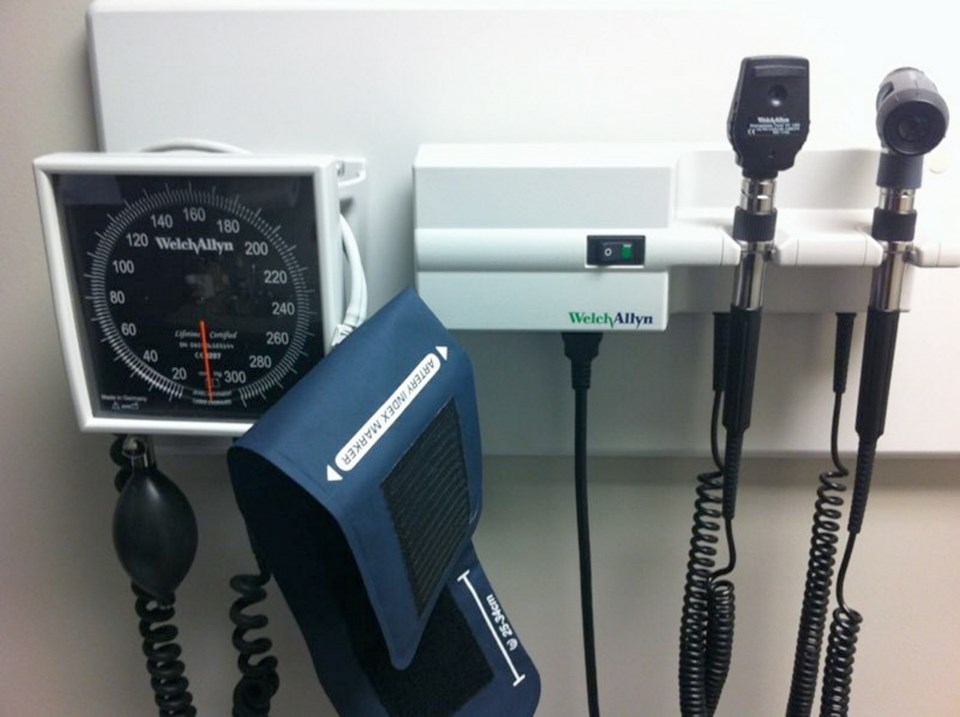B.C.’s finance minister announced $4 billion in new funding over three years for enhancements in health, mental health and pandemic response, as she delivered her first budget on Monday.
The majority of the funding, $3.1 billion over three years, goes toward health and mental-health care, with $900 million allocated for pandemic response in 2021-22.
Enhancements over three years include $748 million to expand urgent and primary care centres — of which there are 23 so far — and reduce surgery wait times made worse by the pandemic, as well as diagnostic services, and $585 million to hire about 3,000 new care aides.
That’s a “really significant” and necessary investment, said Mike Old, interim secretary-business manager for the Hospital Employees’ Union, which represents about 50,000 health workers, including more than 15,000 care aides.
Christine Sorensen, president of the B.C. Nurses’ Union, was disappointed with the budget, however, saying the pandemic has shown there’s a nursing shortage, with a significant deficit of critical-care nurses at a time of record-high admissions to intensive-care units.
The auditor general has said 23,000 more nurses will be needed in B.C. by 2030, Sorensen said, yet the budget does not include any investment in nursing education.
“We hear regular announcements around new facilities and new equipment, but it will not matter … if there are no nurses to care for the patients who occupy those beds,” she said.
“And right now, we have a mentally and physically exhausted workforce that was looking to government to lead and to invest in nursing in this province, so unfortunately the nurses will be disappointed.”
The budget also contains $500 million over three years to improve mental-health and addictions services amid an overdose crisis that was declared a public-health emergency five years ago this month.
The province says it will provide more mental-health support in schools and continue to expand Foundry Centres, “doubling the number by 2024.”
While critics say the investment is not enough to create more needed treatment beds and that mental health accounts for a fraction of what’s spent in the Health Ministry budget, Robinson calls the investment “historic.”
She said the province is quadrupling the number of integrated child and youth support teams to provide community-based mental health and substance-use services.
The budget includes $61 million to improve access to and quality of mental-health services, $14 million for the First Nations Health Authority to deliver mental health and addictions services to Indigenous people, $330 million to provide substance-use treatment and recovery services, including opioid treatment, and 195 new substance-use treatment and recovery beds.
No money is earmarked for the provision of a safe supply of drugs. Minister of Mental Health and Addictions Sheila Malcolmson said last week the province is working on formalizing a request to Health Canada for a province-wide exemption for personal possession of drugs as one way to address growing opioid poisonings due to a toxic supply of drugs sold on the street.
The $900-million pandemic funding in the budget includes continued vaccine rollout to 4.3 million eligible British Columbians, contact tracing of every person infected, testing, screening health-care workers in long-term care, and personal protection equipment.
The pandemic response fund also includes $153 million for the 2021-22 fiscal year to maintain the levelling-up of wages for health-care workers in long-term care. At almost $13 million a month, the wage increase was implemented early in the pandemic, in tandem with a provincial order for health-care workers to work at only a single site, to prevent workers from potentially carrying the virus between facilities.
“Going forward, we’re looking to see how the government carries through with its commitment to establish a level playing field in seniors care by having common wages and working conditions and benefits across the entire sector,” said Old.
As part of pandemic-response contingency funding, the budget includes money to continue to pay doctors a fee for virtual appointments — about equal to the fee for in-person appointments — while a plan is developed to incorporate virtual care, which has surged amid the pandemic.
As part of $26.4 billion in capital investments, $7.8 billion will go toward new and expanded hospitals, such as Cowichan District Hospital, and long-term care beds, medical and diagnostic equipment and technology systems.
In a year when challenges have ranged from vaccine-supply delays to the risk of new variants, Robinson praised the efforts of British Columbians, from HandyDART drivers to grocery clerks, to meet the steep challenges of the pandemic.
She singled out Dr. Omar Ahmad, a Victoria-based critical care doctor who serves as department head of emergency and critical-care medicine for Island Health, and his team, who “watched the crisis escalating around the world, and worked overtime to prepare for its arrival here.”



